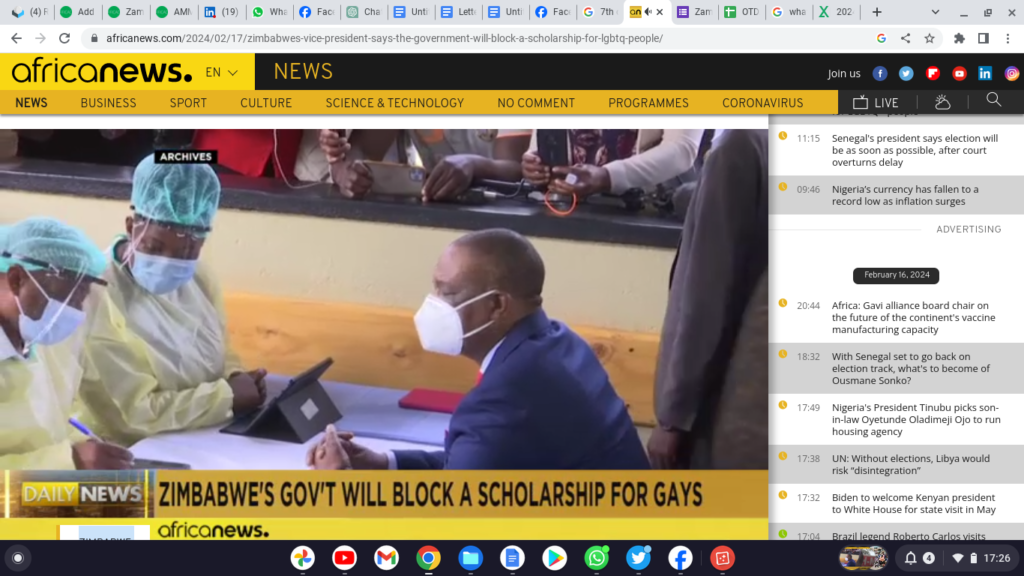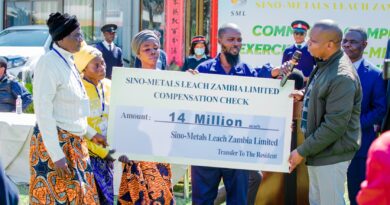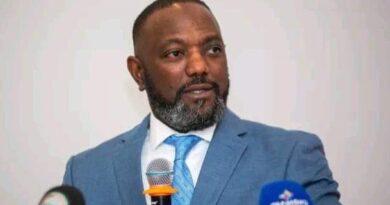Zimbabwe’s Govt Blocks Gay Scholarship
Zimbabwe’s Vice President Constantino Chiwenga has announced the government’s decision to block a university scholarship program for young LGBTQ+ individuals.
The state university scholarship, sponsored by GALZ, a membership organization for LGBTQ+ people in Zimbabwe, aimed to provide equal access to higher education for marginalized individuals.
However, Vice President Chiwenga condemned the initiative, labeling it as a challenge to the government’s authority and incompatible with Zimbabwean values.
Chiwenga, known for his staunch Catholic beliefs and past military leadership, issued a strongly worded statement asserting that Zimbabwe’s schools and institutions of higher learning will not entertain applicants associated with LGBTQ+ values, which he described as “alien, anti-life, un-African, and un-Christian.”
He warned against the acceptance of scholarships based on what he termed “aberrations,” reaffirming Zimbabwe’s anti-gay laws and threatening appropriate measures to enforce them.
The announcement has sparked concerns among human rights advocates, who view it as a perpetuation of Zimbabwe’s discriminatory practices against sexual and gender minorities.
Wilbert Mandinde, the programs coordinator at Zimbabwe Human Rights NGO Forum, expressed alarm over the government’s intolerance, highlighting the scholarship’s potential to open opportunities for young people.
Zimbabwe has a history of discriminating against LGBTQ+ individuals, with former President Robert Mugabe famously describing them as “worse than dogs and pigs.”
President Emmerson Mnangagwa, who succeeded Mugabe in 2017, has been less vocal on LGBTQ+ issues, but Chiwenga’s recent stance underscores the continued hostility from authorities and influential religious groups.
In a country where laws criminalize homosexual activity and same-sex marriages are banned, the government’s decision to block the scholarship further marginalizes sexual and gender minorities.
Zimbabwe’s Catholic bishops, echoing sentiments from other African religious leaders, have also expressed reservations about LGBTQ+ rights. The threat to ban the scholarship aligns with a broader trend of opposition to public acts or declarations perceived as supportive of gay rights.
Additional Source: AfricaNews



